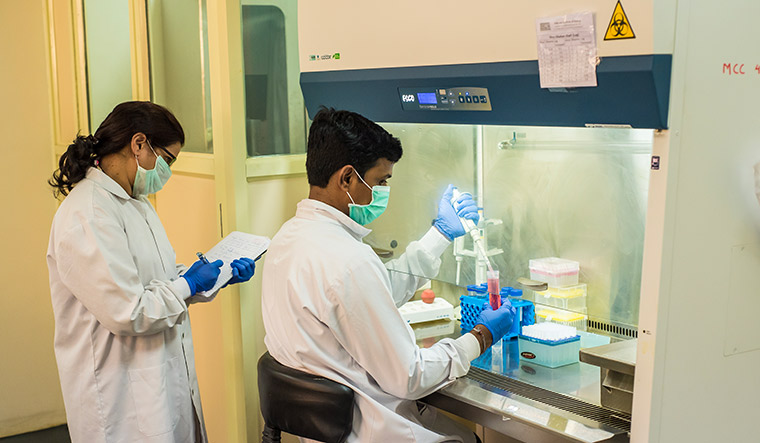Scientific research teams working over long distances are likely to make fewer breakthrough discoveries than those working on-site, according to a new study.
Researchers said that while computers and Internet have connected talent worldwide, yet studies have shown that "breakthrough innovation" is declining, rather than accelerating as was predicted.
Analysing more than two crore research papers published between 1960 and 2020, researchers from the universities of Oxford (UK) and Pittsburgh (US) found that teams working remotely were less likely to engage in conceptual tasks such as conceiving research or writing papers, which are needed to produce breakthrough research.
The researchers said that therefore, it is harder for such research teams to "integrate effectively to deliver breakthroughs", despite their potential to deliver new, creative scientific ideas, owing to easier access to global knowledge pool. Their findings were published in the journal 'Nature'.
"Our paper provides an explanation for why this happens: while remote collaboration via the Internet can bring together diverse pools of talent, it also makes it harder to fuse their ideas," said lead co-author Carl Frey from the University of Oxford.
The research papers analysed in this study involved about 2.25 crore scientists from 3,562 cities. The researchers also examined 40 lakh patents filed between 1976 and 2020, by 27 lakh inventors across 87,937 cities.
They found that scientific research teams collaborating over "extremely long distances", defined as more than 2,500 kilometres, increased substantially from two to 15 per cent for research papers and from three to nine per cent for patents.
However, this research found that these remote researchers were "consistently less likely to make breakthrough discoveries".
These teams were also less likely to engage in conceptual tasks needed to produce breakthrough research, although they were more likely to contribute to technical tasks, such as performing experiments and analysing data, the researchers said.
They said that their findings had important policy implications.
Shifting to working remotely after the pandemic could enable smaller and gradual progress in scientific research, but make breakthroughs less likely, the researchers said.
Therefore, the focus on digital infrastructure should not take precedence over investment in physical infrastructure that helps reduce travel costs and makes housing more affordable, they said.
"Today, there is much talk about AI supercharging innovation. Yet many predicted the same with the advent of the PC and the Internet. This should serve as a reminder there is unlikely to be a pure technological solution to our innovation problems," said Frey.
Research teams working on-site, or having geographical proximity, breaks hierarchy and enables flatter team structures and intensive communication essential for conceiving ground-breaking ideas, according to lead co-author Lingfei Wu, assistant professor of information science at the University of Pittsburgh.
"True innovation often has a hometown. It is easier, for example, for a graduate student to discuss informally ideas with a senior professor in a hallway than through email.
"Even with digital advancements, online meetings cannot fully replace the unique value of face-to-face interactions in fuelling innovation," said Wu.


